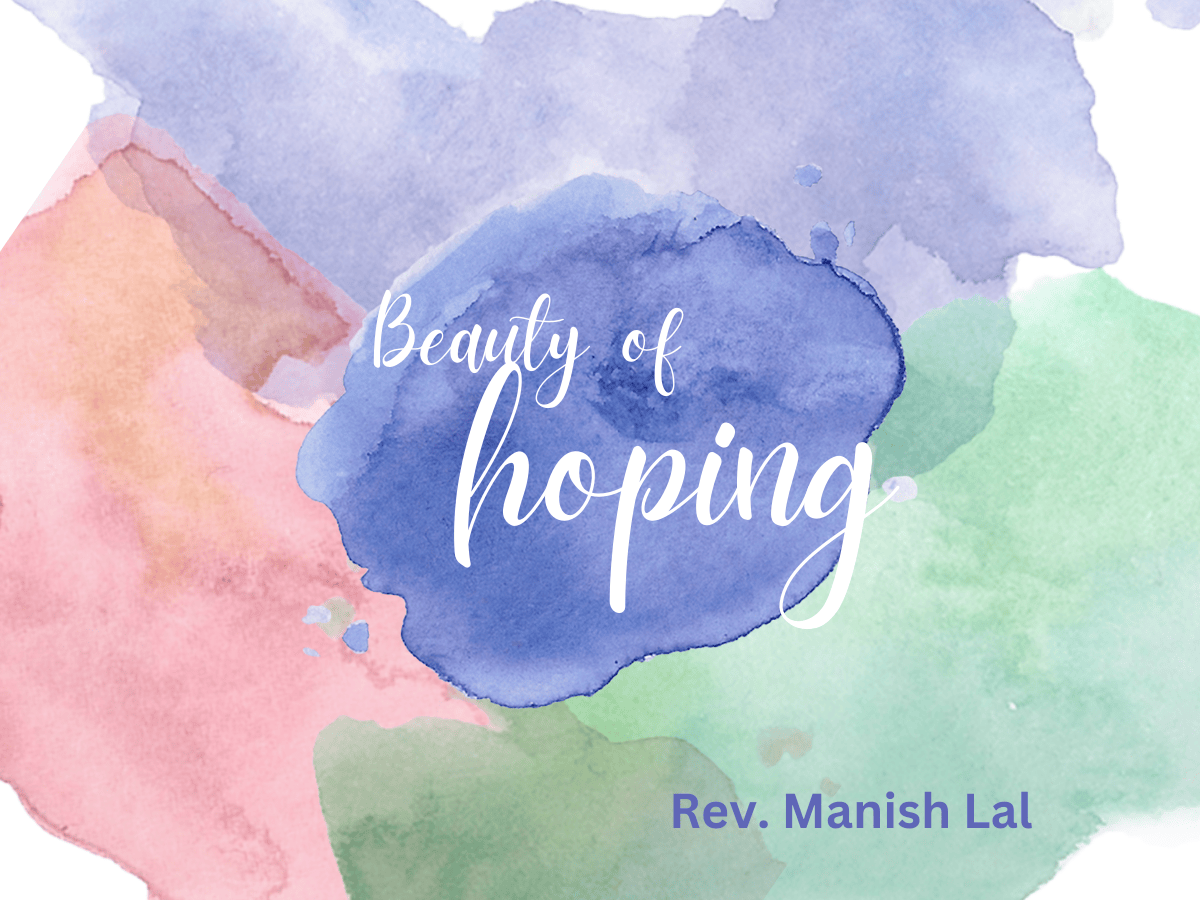
“Human beings live in hope indeed. If hope was totally extinguished and there remained only a black despair, it would be impossible to go on living. For hope obviously has to do with the future. Every human life is oriented to the future, as day by day the leading edge cuts its way into the time that lies ahead.” The question asked by certain people “how long will I bear it” or “how long will I be like this” itself is out of their hope to live a better life. In this context, I , in this article , try to descriptively analyze the Biblical and Psychological understanding of hope and its implications for pastoral care and counseling.
Hoping is a realistic and adaptive response to extreme stress or crisis, in which a person acquires a patient and confident surrender to uncontrollable and transcendent forces. According to Webster’s Dictionary, hope is a confidential expectation that a desire will be fulfilled. It is a virtue by which a Christian looks with confidence for God’s grace in this world and glory in the next.
It is characterize by a measure of confidence and affirmative expectation about the future, but it should never be confused with a shallow optimism, which is mere counter feit of hope. Biblical Understanding of Hope The word ‘hope’ is crucial to Biblical faith. Equivalent uses of the word appear over 125 times in the scriptures. It is often used in conjugation with faith.
The Bible can be considered as faith’s witness to “ God’s promissory note” in history . The Old Testament often exhibits a strong sense of historical expectation, whether in hope of a bright future (promise of God) or a dread of coming judgment (the warnings of God). “My hope is in the Lord” is the Psalmist’s affirmation of faith. In the New Testament. Paul makes faith and hope distinct and co-equal parts of his triad of abiding virtues. The gospel is essentially a gospel of hope.
It is the good news of a new covenant, a new possibility ad a renewed faith that there is a remedy to our despair , our estrangement ,our hatred and our loneliness. The basis of Christian hope lies in the trust in God’s love to provide meaning and fulfillment in life. In other words, the love of God is itself the object and ground of Christian hope. The Biblical hope is nurtured and sustained by a hoping community; a community that anticipates the coming of God’s kingdom.
In Biblical terms, hope is a confident expectation in God. The Christian hope, placed in God alone is partly used in present life and partly based on the eschatological life. In modern parlance hoping is a response to stress of a kind and intensity that does not allow denial , repression or other forms of psychic refutation. The Nature of Christian Hoping For Christian, hope springs as a response of the creature to the creator. Hope arises from relational experience in the context of a struggling situation.
It leads to meaningful thinking and effective living. “Or faith and trust in God and God’s love do not insist that God render a bill of particulars but rather loosen up the all-too-human tendencies to grasp for sheer security.” Hope involves creative imagining of things that are possible in love, which have occurred. Christian hope is a mater of personal relationship and patient and loving trust in God. Hope in Christian sense, is living by grace. Christian hope differs from wishful thinking and shallow optimism.
It is ultimately rooted and grounded in God’s love as revealed in Jesus Christ. It is essentially a shared experience, hoping with or for others, which transcends the lone individual and his/her egoistic needs. Community is the vehicle of hoping. It is a here and now experience that contains both a pledge of ‘things to come’ and ‘first fruit’ that can be tasted. TI offers a new vision of reality that can be seen through faithful and creative imagination. It is essentially a state of awareness or an attitude, not a matter of doing or believing or getting.
It is non-rational and non-linear, yet it exists on the boundary between reality, as we know it and dreams of what could be. It is just opposed to ‘unhope’ or despair; it is made possible through the reality of the tragic and the experience of despair. The shape of our hoping reflects who we are and includes our self-perceptions.
Hoping is projecting ourselves into a larger world of new possibilities that we did not see before . Hope initiates a new sense, for it finds possibility in the midst of despair. Expressing Christian hope through our ministries of pastoral care means to live in the expectation that the love we have known in Jesus Christ will continue to express itself as the meaning and fulfillment of life, whatever comes. However, hope is not a readymade thing available to all, but the counselor, being a facilitator, tries to bring it out through a trustful and meaningful interaction. Pastoral care, in this sense, must include the task of generating and sustaining a realistic Christian hope in its ministry of healing.
Author: Rev. Manish Lal is an ordained minister of the Methodist Church, Madhya Pradesh.


